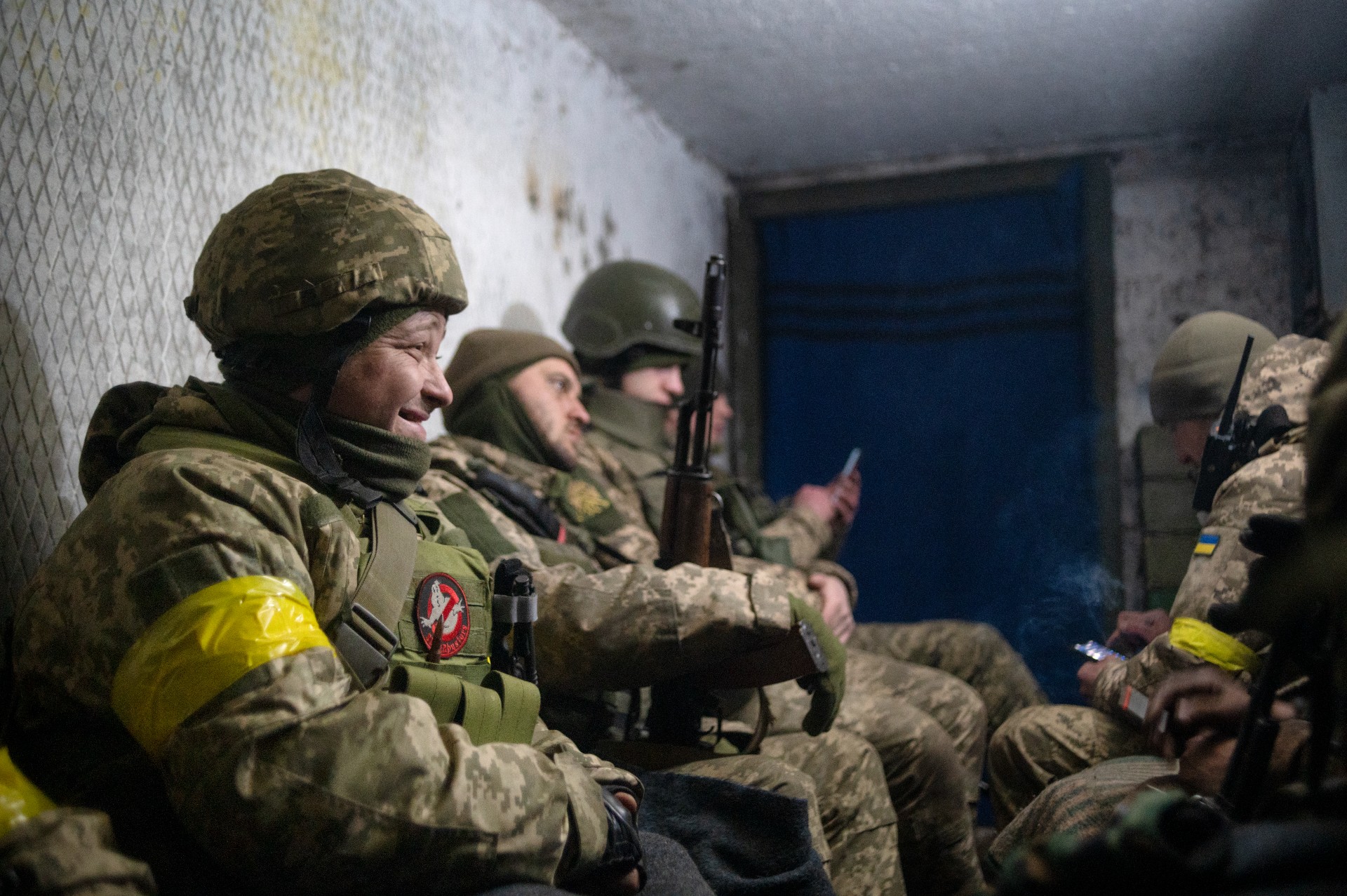Maks Levin, the Ukrainian photojournalist whose body was recovered near Kyiv earlier this month, was passionate about documenting the defence of his country against Russian invaders, his partner told VICE World News.
Levin, 40, who was working for news agency Reuters and other outlets, had been on the front line in east and central Ukraine covering the invasion since it began on February 24th. He went missing on March 13th.
Videos by VICE
His body was found by his burned car in Huta Mezhyhirska, a village near Kyiv which had been over-run by Russian soldiers. He had sustained two gunshot wounds to the head. Ukrainian officials, who are investigating his killing, believe he was shot by Russians despite having a press jacket and being unarmed.
Levin’s up-close images of Ukrainian soldiers were featured globally, including in a story for VICE World News. In that piece he said he would stay capturing the war from the danger zone until he was physically unable to, because “these soldiers are my friends”.

Levin’s partner, Zoriana Stelmakh, knew something was wrong because he always stayed in touch with her. On the 1st of April one of Levin’s friends and a soldier knocked at the door of the couple’s home near Kiev to tell her his body had been found.
Stelmakh, 24, told VICE World News via Zoom that Maks, a dedicated father to four sons from two previous marriages, was passionate about documenting the courage of those forced to defend their country.
“He wanted to show the kind of people who are fighting for Ukraine, that these soldiers are all sons, fathers and brothers, human beings defending their family and kids from the enemy. He was also really sensitive and he had a feeling for people. If there’s one thing that sums Maks’s work up, is that he showed the truth.”

On Monday, the day after his funeral Levin’s family were presented with the Order of Courage, awarded posthumously to the photojournalist, by Ukraine’s President Volodymyr Zelenskyy.
Stelmakh, who met and fell in love with Levin on a kayaking trip last April, said he was an adventurous man who was “thirsty for life”, but who had no truck with “fancy stuff” like award ceremonies or even restaurants.
“He would just say, ‘Give me borscht or cheese pancakes, I love them’. He would be laughing at us getting this award. He always said he doesn’t need awards. Even at his own funeral he would have laughed, saying, ‘Hey guys what have you done?’.”
She said Levin was a loving father to his sons, who were unable to attend his funeral because they had been evacuated outside of Ukraine, and wanted them to grow up brave, strong and honest.

Levin, who was from Kyiv, became dedicated to covering the defence of his country since the war in Ukraine against Russian backed separatists in 2014, from which he narrowly escaped with his life while covering the Battle of Ilovaisk, which saw the slaughter of around 400 Ukrainian soldiers who had been promised a safe corridor out of the city.
According to Stelmakh, Levin had warned her and his friends in November that Russia would invade. When he was stocking up on food and taking cash out of the bank, others were telling him not to panic. She remembers him telling her that when the invasion happened, he would be on the front line with his camera, because that was “where I’m supposed to be”.

“He had huge courage, he was not scared of anything and since 2014 he never let the war go. It was his life, it was his heart. Because he really loved Ukraine, he wanted his country to be free,” said Stelmakh.
“A lot of journalists want to see their picture on the front page of the New York Times, but to Maks it was not for show, it was personal. He wanted the world to see what was going on, to see the truth. He said he hoped a photograph could stop the war.”
She said Levin saw this war as black and white, good versus bad, with no grey areas. “Like the soldiers he was with, with all his heart and soul, he hated what the Russians have done to Ukraine. This time he told me that as soon as taking pictures stopped being meaningful, he would take a gun and fight.”
Like tens of thousands of Ukrainians, Stelmakh is dealing with intense feelings of loss, anger and fear. Her brother is a soldier fighting in the east of Ukraine.
“We didn’t deserve this. It is too much pain. A lot of our bravest men, our most honourable people, have died, good people, our dearest friends, sons, brothers, and loved ones. We have already lost so much in this war.

“But the thing is, you know, we can’t give up. At Maks’s funeral there was a lot of talk with his friends, about how we have to put all this hate and anger, not be like they [the Russian invaders] are, but towards being good people doing good stuff, to help people in the most dangerous areas, to bring them food and medicine. We cannot cross the line like them.’

On Friday, an exhibition in memory of Levin’s work will be held at the Pilecki Institute in Berlin.






